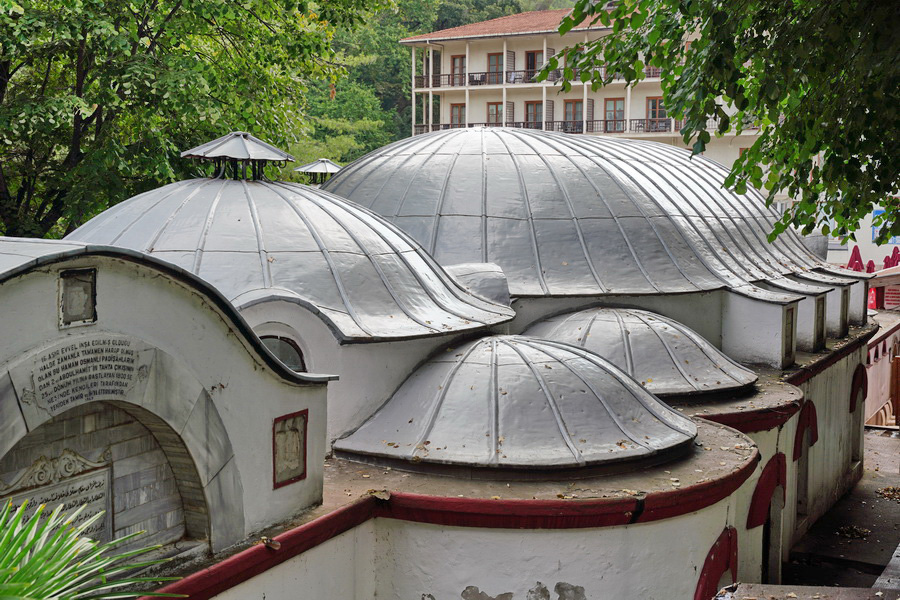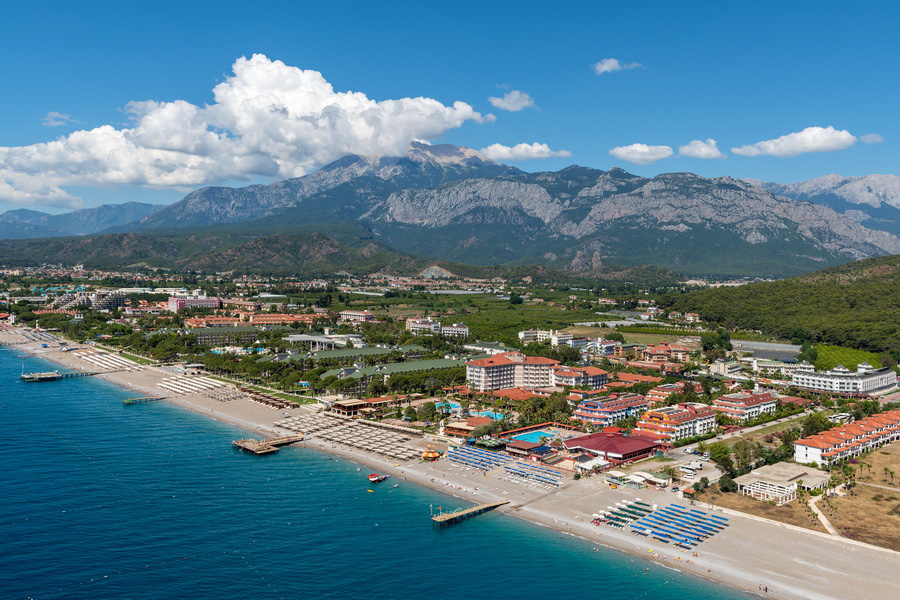Health and Medical Tourism in Turkey

Medical tourism in Türkiye is expanding rapidly, making it one of the most appealing countries for medical treatment. According to USHAŞ (Turkish state-owned healthcare company), the country welcomed 1,506,442 international patients in 2024, corresponding to a revenue amounting to $3,022,957. Its proximity to Europe affords the country a massive influx of tourists and medical visitors who seek to bypass the long wait times and high healthcare costs at home.
Turkey's government recently set up a HealthTurkey web portal that acts as a mediator between international patients and Turkish healthcare providers to promote a much more seamless medical travel journey.
Why Choose Turkey for Medical Tourism?
There are several reasons why medical tourists may opt for medical treatment in Turkey, depending on the country they come from. Here are a few:
- Reputation & Global Ranking in Healthcare: In the 2025 Global Relocate Index for the best healthcare, Turkey ranks 26th, leaving behind Canada, the United States, Sweden, Australia, and New Zealand. According to the WIPO Global Innovation Index (GII), it ranks 37th out of the top 40 innovation performers out of 133 economies.
- Cutting-Edge Facilities & Technology: The Memorial Healthcare Group (Memorial Sağlik Grubu), the Acıbadem Healthcare Group (Acıbadem Sağlık Grubu), and others use state-of-the-art healthcare solutions.
- Cost Saving Compared to Other Countries: Medical service in Turkey is more affordable than in developed countries such as the US, Canada, or Western Europe while still providing the same high-quality care.
- Shorter Wait Times: In many countries, the wait time for medical care can be long, sometimes several months. In Turkey, medical tourists can often receive care quickly, with shorter wait times for appointments and procedures.
- Partnership with the US institutions: In September 2024, the two hospitals of Koç Healthcare (American University and Koç University Hospital) joined the Mayo Clinic Care Network. They are, in fact, the first institutions in Europe to join Mayo (Mayo Clinic College of Medicine and Science), an American university hospital and research federation.
- Advanced Specialised Fields: Turkey has a strong reputation in specialised medical fields like hair transplantation, ophthalmology, cosmetic surgery, dental care, and oncology.
- Fascinating Travel Experience: Turkey is a popular travel destination. Medical tourists can combine medical travel with sightseeing the country’s beautiful attractions and tasting its delicious traditional dishes.
Is Medical Tourism in Turkey Safe?
Understanding Healthcare Standards
Primum non nocere (First, do no harm) – Hippocrates, Greek physician (c. 460 – c. 370 BC)
Health tourism in Turkey is generally safe. However, ensuring a positive and secure outcome requires thorough research. Visitors can confidently embark on their medical journey in Turkey by verifying that a chosen hospital or clinic is accredited and meets international healthcare standards.
- Accredited Hospitals in Turkey & International Certifications
Turkey’s reputable medical clinics and hospitals are fully certified by the Joint Commission International (JCI), a US-based nonprofit organisation recognised as a global leader in health care accreditation. At the beginning of 2025, there were, overall, 40 health institutions in Turkey that had obtained the Gold Seal of Approval, which is JCI accreditation, 25 of which are in Istanbul. In addition, there is 1 laboratory, 3 Ambulatory Care Programmes, 4 Academic Medical Centre Hospital Programmes, and 32 Hospital Programmes accredited in Turkey.
- Government Regulations & Patient Rights
Beyond JCI, healthcare institutions aiming to work with international clients must obtain a language certificate from the Higher Education Board (YÖK) or from the Foreign Language Proficiency Examination organised by the Measuring, Selection, and Placement Centre (ÖSYM), or an International Health Tourism (IHT) certificate equivalent to the ÖSYM from the government to provide diagnostic, therapeutic, and rehabilitative healthcare services. A whole set of rules stipulates provisions concerning health brokers (intermediaries), private clinics, informed consent, patient travel issues, payment, medical records, privacy and confidentiality, dispute resolution, quality, safety, and risk. All these regulations protect the rights and interests of international patients in Turkey.
- Success Rates & Testimonials from International Patients
Turkey’s medical tourism sector boasts consistently high success rates, particularly in cosmetic surgery, dental care, and hair transplantation. International patients frequently commend Turkish healthcare professionals and the efficiency of procedures. Many have shared positive customer reviews, emphasising high standards of care, smooth medical processes, and impressive results.
Platforms like WhatClinic review medical services and hospitals across 135 countries – including Turkey – and present valuable insights into patient satisfaction and hospital reputations. Prospective medical travellers are encouraged to explore independent reviews to make well-informed decisions.
Popular Medical Treatments in Turkey: What is in Demand?
According to Statista, the German online platform specialised in data gathering and visualisation, the most preferred aesthetic treatment types in 2023 were rhinoplasty, liposuction, and eyelid surgery. Here is the more detailed data on the preferred treatment and procedure types.
Turkey: Top Destination Choice for Hair Transplantation
According to Schengen. News, dated October 24, 2024, Turkey, along with Germany and Spain, is the most prominent country in the world to undergo hair transplant surgery. In 2022, the head of the Turkish Health Tourism Association stated that about one million travellers came to Turkey and spent around $2 billion on hair transplant procedures alone.
Individuals interested in the procedure are encouraged to look for clinics that have certifications from organisations such as the International Society for Hair Restoration Surgery (ISHRS) and the European Hair Research Society (EHRS).
Cost of Medical Tourism in Turkey

According to the Placid Way platform one can save 50% to 70% instead of undergoing medical treatment in their home country. For instance, residents of developed countries might go abroad for a fortune's worth of dental work or cosmetic surgery, which insurance may not cover.
Here is a comparative overview of the average costs for common medical procedures in Turkey versus other countries. Please note these figures are approximate and vary based on specific circumstances.
| Average Hair Transplant Cost Per Country in US Dollars in 2024 (Medihair Platform) | |||||||||
| Turkey | USA | Canada | UK | Australia | France | Germany | Italy | Spain | Poland |
|
$2,675 €2,570 £2,138 |
$13,610 | $17,500 | $8,050 | $13,751 | $8,379 | $7,372 | $7,097 | $5,267 | $5,647 |
| Average Eye Lasik Care Costs Per Country in US Dollars in 2024 (Placid Way Medical Tourism) | |||||||||
| Turkey | USA | Canada | UK | Australia | France | Germany | Belgium | Spain | Switzerland |
|
$1,265 €1,214 £1,011 |
$4,400 | $2,705 | $1,795 | $1,151 | $2,244 | $1,458 | $2,804 | $1,189 | $3,700 |
| Average Cost of a Single Dental Implant in US Dollars ($) in 2025 (Medical Tourism Corporation and Qunomedical) |
|||||||||
| Turkey | USA | Canada | UK | Australia | Croatia | Germany | Hungary | Czech Republic | Poland |
|
$570 €547 £455 |
$3,750 | $1,950 | $2,950 | $5,500 | $730 | $1,770 | $1,146 | $1,146 | $1,146 |
| Average Rhinoplasty Cost in US Dollars in 2025 (Wupdoc) | |||||||||
| Turkey | USA | Mexico | UK | UAE | Thailand | Spain | Italy | Croatia | Poland |
|
$2,700 €2,600 £2,166 |
$7,250 | $3,230 | $7,030 | $7,030 | $3,280 | $6,250 | $6,770 | $3,385 | $5,730 |
These estimates are based on data from various sources and shouldn’t be considered medical or financial advice.
Other factors that weigh in:
- Variability: Actual costs vary depending on the clinic, quality of the material used, location, and individual patient needs.
- Inclusions: Some prices might include additional services such as consultations, hospital stays, and post-operative care, while others may not.
- Currency Fluctuations: Exchange rates can affect the cost comparison over time.
- Insurance Coverage: In some countries, insurance may cover a portion of these costs, impacting out-of-pocket expenses.
When considering medical procedures abroad, it’s crucial to conduct thorough research, consult with healthcare professionals, and consider factors such as the quality of care, accreditation of facilities, and the qualifications of medical personnel.
The Best Hospitals in Turkey for International Patients

A network of internationally accredited hospitals caters to medical tourists, rendering luxurious and comfortable structures to provide complete care for their various needs. The following top hospitals in Turkey prioritise patient safety, multilingual support, and seamless services.
JCI-Accredited Hospitals in Turkey
Acıbadem Maslak Hospital
Liv Hospital Ulus
Medicana International Hospital
Medipol University Hospital
Florence Nightingale Hospital
Medical Park Bahçelievler Hospital
American Hospital
Koç University Hospital
Istinye University Hospital
Ankara
Ankara Güven Hospital
Bayındır Söğütözü Hastanesı
Özel Koru Ankara Hastanesı
Hacettepe University Hospitals
Memorial Ankara Hospital
Medstar Antalya Hospital
Bursa
Özel Hayat Hastanesi
Izmir
Acıbadem Kent Hospital
Egepol International Hospital
Izmir University of Economics Medicalpoint International Hospital
How to Choose the Right Medical Facility
Choosing the right hospital in Turkey for medical treatment is very important. The guide below provides helpful tips on selecting the top medical facilities to ensure foreign visitors enjoy the most pleasant and beneficial stay possible.
1. Check Accreditation and Certification
Reputable public and private clinics in Turkey adhere to strict standards and obtain accreditation from national and international organisations. It is advisable to check out the following criteria:
- Joint Commission International (JCI). International patients seeking healthcare in Turkey can easily verify accredited hospitals through the JCI database. By entering the name of a Turkish city in the JCI search field on their official website, tourists can access a comprehensive list of JCI-accredited hospitals and clinics in Turkey.
- American Accreditation Commission International (AACI) ensures the organisation complies with the set of international standards for patients and the quality of procedures. The site provides a list of the AACI-accredited Turkish hospitals and dental facilities.
- EuroMedi International is a European non-governmental organisation providing accreditations of hospitals and clinics based on European medical specificities.
- Türkiye Health Care Quality and Accreditation Institute (TÜSKA) is a reputable Turkish organisation, providing accreditation to local private hospitals.
- International Organisation for Standardisation (ISO). The ISO certificate is another valuable document, demonstrating the hospital adheres to strict health and safety rules.
Potential medical tourists should also look for industry-specific international certifications. For example, oncology centres can be members of the Union for International Cancer Control (UICC). In dentistry, verify affiliation with the International Association for Dental Research (IADR) and the European Orthodontic Society (EOS).
The global accreditation companies share databases of active members. This can be the best starting point to find a highly competent doctor to treat your underlying health issue.
1. Check Technology and Equipment

Current medical institutions in Turkey employ up-to-date technologies and equipment in their treatments.
- Advanced MRI (Magnetic Resonance Imaging) machines
- Computed Tomography (CT Scanners)
- Portable Ultrasound Devices
- Digital X-Ray Systems
- Automated Laboratory Analysis
- Laser Technologies
- Robot-Assisted Surgery
- Anaesthesia Machines with Integrated Monitoring
- Electrosurgical Units
- Digital Imaging and 3D Scanning in Dentistry
- CAD/CAM Technology in Dentistry
- Laser Dentistry
- Sterilisation Standards
1. Evaluate the Experience and Qualifications of Doctors
Health tourists must investigate whether the medical staff is properly educated and pursues continuing education. Choose private medical centres and doctors with many years of experience and who hold diplomas from accredited schools
2. Read Patient Reviews
Patient feedback is a reliable way to evaluate the quality of a hospital. Online reviews can be sourced from Google Reviews, Trustpilot, or WhatClinic. Besides, medical centres that share visual evidence of their work inspire confidence. This is especially true for dental and hair transplantation services.
3. Compare Treatment Costs and Packages
Turkey is a popular destination for aesthetic treatments due to its cheap prices. Despite that, the cheapest option is not always the best option. Therefore, it is important to cooperate with clinics that have:
- Transparent Pricing: Look for healthcare providers that are transparent about their treatment plans without hidden charges.
- Inclusive Packages: Look for medical tourism packages that include accommodation, airport transfers, and excursion options.
- Warranty or Assurance: Check the availability of warranty, especially for aesthetic procedures.
1. Insurance, Cost, and Payment Options
In most cases, Medicare or National Insurance (NI) won’t cover medical treatment abroad. Nevertheless, some clinics allow for:
- Installment options for extensive treatments.
- Credit card payments are widely accepted in most of Turkey’s clinics.
- Third-Party Financing: Some clinics are affiliated with financing companies to facilitate payment.
- Ask for a detailed breakdown of costs to avoid the unexpected.
1. Location and Accessibility
The location of the clinic is paramount when a patient travels from abroad. Some healthcare providers offer discounted partnerships with hotels for medical tourists. Consider:
- Proximity to the Airport: Hospitals in Istanbul, Antalya, and Izmir are more accessible.
- Nearby Amenities: Hotels, restaurants, and transportation options make your stay easy.
- Tourist Attractions: Those who plan to combine their medical treatment with a holiday should pick a clinic close to popular tourist destinations.
1. Postoperative follow-up
- It is recommended to budget for extra postoperative care and consult with your surgeon about follow-up visits, as some procedures may require a return trip to Turkey weeks or months after the surgery.
Medical Visa & Travel Requirements for Turkey
The Turkish government is investing substantial funds in the development of medicine, so it is no wonder the country remains a popular place for medical tourism. However, certain nationals must obtain a medical visa to receive medical services in Turkey.
Do You Need a Visa for Medical Travel?
International patients need a medical visa to access medical care in Turkey. It is important to note that medical and tourist visas are not the same.
A medical visa can be obtained at the Turkish consulate or via the e-Visa portal. Yet not all countries have the right to apply for an electronic visa online. For more information about Turkish visas, refer to the Ministry of Foreign Affairs of Turkey.
Required Documents & Application Process
It is necessary to argue the need for a document to obtain a medical visa at the consulate. You must complete the following procedures:
- Issue a confirmation of the diagnosis at a local clinic at the place of permanent residence.
- Send applications to the chosen Turkish clinic describing the disease.
- Gather documents. Usually, these are a valid passport with a minimum validity of 6 months, an application form, an official letter from a Turkish hospital or clinic, photographs, travel tickets, proof of financial means to support your stay such as a bank statement, and evidence of accommodation booking.
- Pay the visa application fee. The visa fee varies by nationality and might range between $60 and $100.
Travel Insurance and Medical Tourism Coverage
When planning medical treatments overseas, it’s crucial to understand that government health insurance programs, such as US Medicare, Canadian Health Insurance, Medicare Australia, and the UK GHIC, typically do not cover planned medical procedures outside their respective countries, except in very limited circumstances. Therefore, securing private health insurance and complication insurance is highly recommended for peace of mind and comprehensive protection. These policies can cover unforeseen health issues, treatment complications, evacuation to a home country, and even emergency services, providing the necessary medical security during your treatment journey.
Best Places to Stay: Where to Recover After Your Treatment

Once a patient completes medical treatment, their doctor will recommend the best way to recover. Some hospitals may even refer their clients to wellness resorts.
Celebrated coastal areas of Antalya, Bodrum, and Fethiye feature luxury coastal resorts with spas, thermal baths, and wellness centres specialising in post-treatment recovery programs.
Some of the best luxury resorts in Antalya are Lara Barut Collection and Rixos Premium Belek. The number one wellness resort in Bodrum is Titanic Luxury Collection Bodrum. Liberty Fabay and Jiva Beach Resort stand out in Fethiye. These all-inclusive hotels are sure to rejuvenate and boost rapid recovery. While healing, medical tourists can also unwind in the Pamukkale thermal pools, explore the historical landmarks of Istanbul, or relax on the beautiful beaches of Alanya.
No matter which hospital a medical visitor chooses in Istanbul, Ankara, or Izmir, they will have easy access to comfortable hotels close to medical facilities with in-room dining, transportation services, and multilingual staff.
Health Tourism: Wellness and Thermal Resorts in Turkey

Thermal Resorts
Turkey’s thermal resorts are healthy introductions to rejuvenation and relaxation. Its mineral-laden hot spring waters were known to ancient Greeks and Romans, who exploited them for therapeutic reasons to treat a variety of ills.
The Pamukkale white travertine pools are undoubtedly the most popular destinations for travellers. A variety of locations around Pamukkale allow guests to enjoy the heat.
The closest thermal resorts to Istanbul can be found in Bursa; some of its historic hammams hold natural mineral water sourced from Mt. Udulağ.
Only 1 hour and 45 minutes from Istanbul, Yalova, is a small town comprising one resort run by the Turkish Ministry of Health and several private hot spring resorts with thermal pools.
Bolu and Afyon are also at the top of Turkey’s balneology resorts, providing a wide selection of treatments, spa therapies, and well-being facilities.
Wellness Retreats in Turkey
Thermal resorts and spas are not the only solutions for fitness. Indeed, there are a multitude of wellness retreats that allow you to receive programs to treat anxiety, anti-ageing, insomnia, or physical tiredness, among others. Yoga and other sports can also be practiced in wonderful settings and in establishments that offer a high level of comfort.

Legal & Ethical Considerations in Turkish Medical Tourism
While Turkey’s medical tourism sector is rapidly expanding, health tourists must be informed about the legal and ethical considerations involved.
A significant issue is the lack of uniform regulation on medical devices and treatments used by some healthcare providers, which may lead to substandard care. Therefore, it is strongly recommended to choose internationally accredited providers, such as those certified by the institutions listed above, to ensure safety and quality.
International patients should also be aware of potential gaps in post-procedure follow-up care, particularly when dealing with non-accredited plastic surgery centres. For those seeking organ transplantation, understanding the differences in organ donation and transplantation regulations between Turkey and their home country is essential to avoid legal complications.
To safeguard patient rights, the Turkish Ministry of Health Directive mandates that hospitals accepting medical tourists provide a patient consent form in English or a language the patient understands. Patients must also be informed about the complaint procedures available to them.
In the event of malpractice, patients can file a lawsuit for compensation against the Ministry of Health, the intermediary company (if involved), and the responsible doctors. Legal actions can also be taken directly against the hospital or doctor under provisions related to tortious acts regulated under the Turkish Code of Obligations. They outline the legal basis for medical malpractice claims.
Patients are encouraged to verify the credentials of medical practitioners and the accreditation status of facilities before undergoing treatment. Consulting reputable sources and platforms can help ensure a secure and ethical medical journey.
How Long Does It Take to Fly to Turkey?
| (From) City | (To) Istanbul (hours/min) | (From) City | (To) Istanbul (hours/min)* |
| Abu Dhabi (UAE) | 4h 50m | Moscow (Russia) | 4h 05m |
| Amsterdam (Netherlands) | 3h 20m | Oslo (Norway) 4h 00m | |
| Baku (Azerbaijan) | 3h 15m | Ottawa (Canada) | 14h 25m |
| Berlin (Germany) | 2h 55m | Paris (France) | 3h 30m |
| Bucharest (Romania) | 1h 15m | Riyadh (Saudi Arabia) | 4h 30m |
| Canberra (Australia) | 22h 15m | Rome (Italy) | 2h 35m |
| Doha (Qatar) | 4h 45m | Sofia (Bulgaria) | 1h 30m |
| Kuwait City (Kuwait) | 3h 45m | Vienna (Austria) | 2h 15m |
| London (UK) | 3h 40m | Washington DC (USA) | 9h 55m |
| Madrid (Spain) | 4h 15m | Zurich (Switzerland) | 2h 55m |
*Flight durations are based on the quickest direct flights offered by Turkish Airlines in 2025 (except for Canberra, other airlines/several stopovers, and Ottawa with one stopover) and may vary depending on flight corridors allowed, companies, and number of stopovers.
Turkey has firmly established itself as a global hub for medical tourism, spotlighting world-class healthcare services, facilities, and internationally accredited institutions at competitive prices. Thanks to the robust regulatory framework, highly skilled medical professionals, and seamless integration of healthcare with hospitality, the country continues to attract patients from around the world. Whether seeking specialized treatments, cosmetic procedures, or wellness retreats, medical travellers can expect high standards of care alongside the opportunity to appreciate Turkey’s rich cultural and natural beauty.

